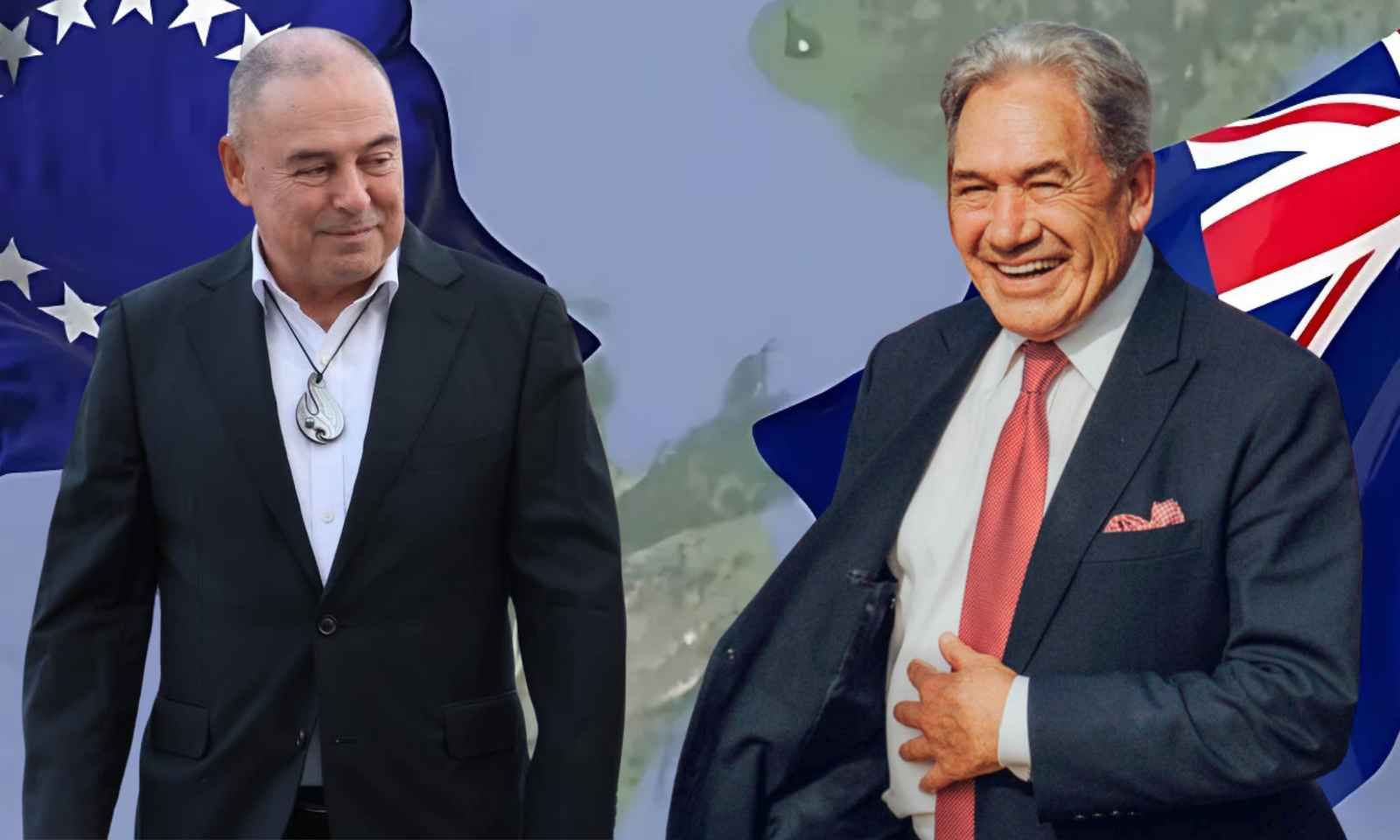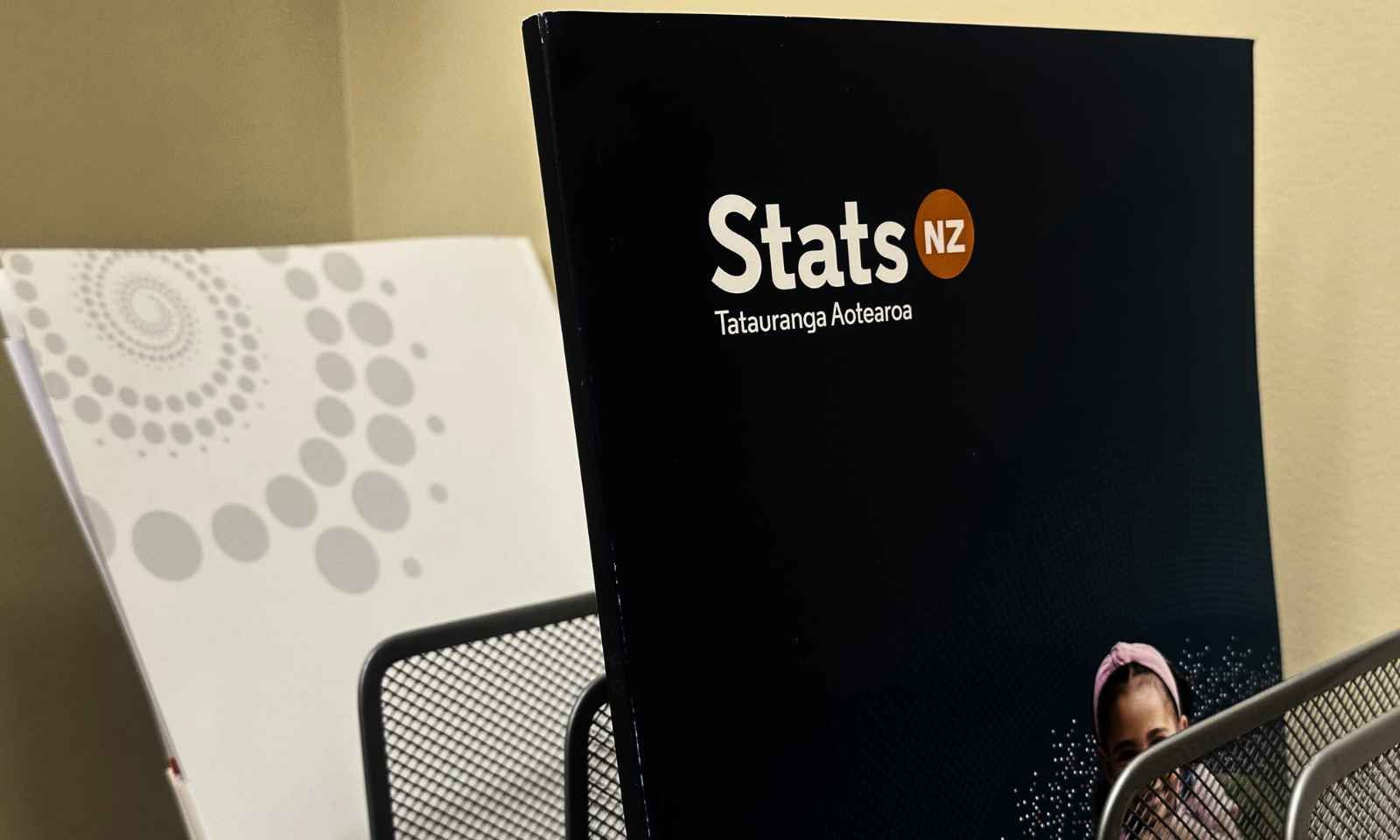

Richard Pamatatau and Angee Nicholas.
Photo/YouTube/SUSI 207 On Journalism and Media/Supplied
Debate unfolds over NZ-Cook Islands tensions and Pacific unemployment
In a live panel discussion, Cook Islands commentators Angee Nicholas and Richard Pamatatau dissect the recent diplomatic fallout and rising unemployment.




Will’s Word: When a party president becomes the headline, something’s gone wrong



Flying Fiji stay sharp, BlitzBoks steal a thriller and Auckland FC rule the derby once again


Will’s Word: When a party president becomes the headline, something’s gone wrong

Two Cook Islands commentators agree that there is a need for improved communication between New Zealand and the Cook Islands amid tensions between the two nations and the growing disappointment among Cook Islanders with their government.
Prime Minister Christopher Luxon came under fire this week for attending Papua New Guinea’s 50th-anniversary celebration instead of the Cook Islands’ 60th Constitutional Celebrations. The event follows a fallout and back-and-forth between officials from Wellington and Rarotonga.
The Cook Islands signed an agreement with China in February, which led New Zealand to pause $18.2 million in funding due to concerns over a perceived “lack of transparency”. Speaking with William Terite on Pacific Mornings, a former National Party candidate, Angee Nicholas, says there are “two sides” to Luxon’s decision to head to PNG instead.
“I'd be in two minds. We're not privy to any of the conversations that happen but what we do know is there's something that needs to be done. Talks need to happen and whether or not that has happened, from what we can see, probably not.”
Richard Pamatatau, a journalism senior lecturer at the Auckland University of Technology (AUT), says Luxon’s decision appears “particularly petulant”, but he agrees with Nicholas that understanding the unseen conversations is important for context.
“In a broader sense, one could argue that the approach taken by New Zealand with successive governments, not just the current Coalition, towards the Cook Islands is locked into a colonial framework. When the colonised body doesn't do what is expected, then people get very upset,” Pamatatau says.

Cook Islands Prime Minister Mark Brown, left, and NZ Foreign Affairs Minister Vaovasamanaia Winston Peters (right). Photo/Supplied
“We've seen that with the Foreign Affairs Minister, [Winston] Peters. These things are really complicated, perhaps the Cook Islands Prime Minister was thinking ‘not enough is being done, what we offer is not being recognised, and China has reached out. As a political leader, I need to make a decision about what's best for my population’.”
Nicholas says Cook Islanders in Aotearoa and abroad remain divided on this issue, and that the goal is finding solutions with the hope for future talks between the two countries.
Watch the full panel debate on Facebook below.
“There's been huge disappointment from Cook Islanders themselves, living here and abroad in the Cooks, who are disappointed at their own prime minister. Having to head over to the Cooks for a celebration with these disputes that are still ongoing, would be difficult.”
When asked what advice he would give if he were Prime Minister Mark Brown’s press secretary, Pamatatau highlighted the importance of careful communication, especially given the dissatisfaction among Cook Islanders about their government.
“It’s a case of ‘think before you open your mouth'. That's a blunt assessment, but this is a blunt issue that needs to be fixed.” Another topic discussed by Pamatatau and Nicholas was unemployment. Recent figures from StatsNZ indicate that Pacific unemployment is at 12.1 per cent, significantly higher than the national average.

This week marked Christopher Luxon's second visit to Papua New Guinea since becoming Prime Minister. Photo/PMN News/Ala Vailala
Luxon blamed mismanagemen by the previous Labour government, saying his administration is “doing everything we can” through measures aimed at reducing inflation and interest rates, along with fostering economic growth. Nicholas says that while it is too early to judge the current Government’s performance, more needs to be done.
“They've only been in office for a couple of years and we have to realise it's not just National, it's a Government, a coalition. But progress is being made. The starting point is it's tough to hear those figures and how the Pacific is affected by it.”
Pamatatau says both the National Party and previous governments have failed the Pacific population. He says rising employment numbers do not look good for National, adding that their supporters expect them to stabilise the nation.

According to StatsNZ, unemployment rose to 5.2 per cent in the June quarter of 2025, the highest it's been since September 2020. Photo/PMN News/Ala Vailala
“That hasn't happened,” Pamatatau says. “Governments over the last 10 to 20 years have not recognised the need to engage with the Pacific population and work on upskilling, education, health, housing, [and so forth]. It has been going on for a long time, so we can't just sheathe all the blame to the current Government.”
Nicholas says one solution is investing in better-paying jobs, which aligns with the Government’s focus on the economy. She says Government policies also prioritise youth, but acknowledges that there are several points that need addressing.
But Pamatatau argues that analysing employment figures shows a broader issue that needs immediate attention. He says getting back to the basics is key, such as looking at education, health and housing.

Recent figures from StatsNZ indicate that Pacific unemployment is at 12.1 per cent, significantly higher than the national average. Photo/File
“These are things that you can't blame it on the current Government, it's 20 years of not thinking this stuff through. It's not just the Pacific population that's in trouble here, it's poor European-Anglo families, and people who don't have the skills to get a job,” Pamamatau says.
“Currently, because of the cutbacks across a whole range of areas, it's people who once had good jobs, now not even able to get an interview for a job. It's going to take a lot of work and a lot of hard conversations to get things improved. It won't happen within this term of government or the next. It's a long-term burn that we need to look at.”